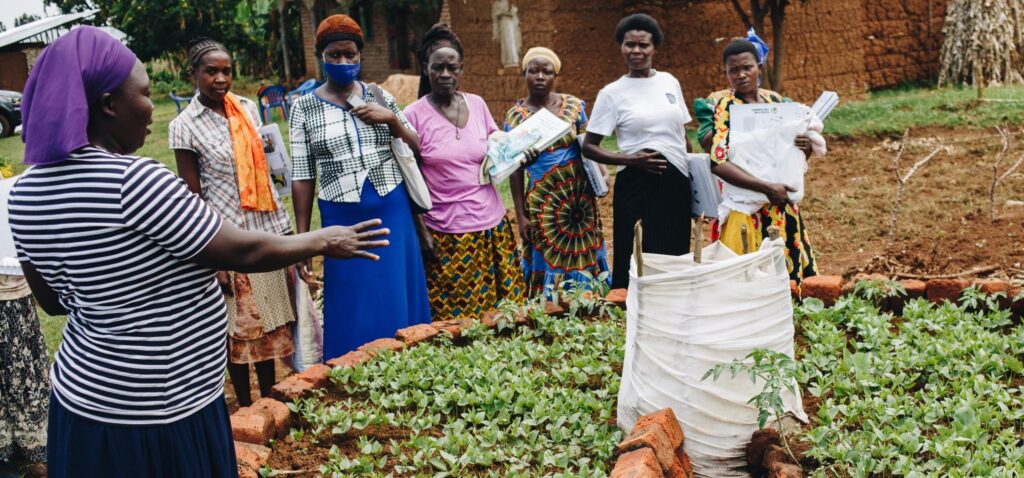A month on from Devex World 2022, and how are we doing? Close to 1000 leaders, practitioners, thinkers and funders converged in Washington DC in July to wrestle with and unpack this year’s theme, “Creating a Better Normal.” Double that number attended online to participate in a packed and varied agenda. The better normal for whom, how, what, and where are questions that will continue for some time to come, however. In this age of innovation and disruption, where the call for radical change is loud and persistent and necessary, the challenge to find “a better normal” may have been a courageous opener.
Yes, some might say that Devex World and forums like it simply allow a group of like-minded people to indulge in the echo chamber of the development community, in a safe space where new business is forged and the industry grows bigger. But this year felt a little different, a little more urgent. Maybe it’s because this normal world affects all of us now. Fragility, resilience, hunger are no longer abstract terms. We are forced to understand what complex really means and how the linkages work or don’t.
At Food for the Hungry (FH), we recently celebrated 50 years as an organization founded to pursue justice and equity for all, and our normal has changed dramatically over that time, sometimes for good, sometimes not. As the Devex World opening plenary suggested, should we expect a world where complex crises, fragile climates, displaced populations, and inequitable markets are the norm? We believe we should absolutely plan for and respond to that reality, but not accept it, as we also want to balance meeting urgent human and social needs with fundamental changes to the systems and structures that, if unchanged, will result in 80% of the world’s extreme poor living in fragile contexts by 2030. (OECD 2018)

Complex
Bill Gates followed the opening session with a virtual call for greater equity in pandemic preparedness. High income countries focused too much on themselves in both the manufacture and distribution of COVID-19 vaccines. He suggested that 12-year-old children in the U.S. should not have been given the opportunity of vaccination before 50- and 60- year old adults in Zambia and Guatemala, for example. I personally spoke to Mozambican friends at the height of COVID-19 where complete lock down simply wasn’t an option for people who live day to day through informal economies to meet their very basic needs. We globally responded in a way that was inequitable on so many levels. But, is there any choice? Does this “normal” world of high versus low income, complex crises, hunger, migration, and what the International Monetary Fund (IMF) has labeled ‘sea of troubles” allow us to think or act any differently? I heard the term complex a lot during the day, but I wonder if “complex” is overused to describe things that we simply don’t know what to do with. Or that we need permission not to know what to do with…
Resilient Communities
IMF Managing Director Kristalina Georgieva spoke after Gates, in person and in conversation with Raj Kumar, Devex president and editor in chief. Not that I have followed IMF policy in great detail historically, but this did feel like a potential turning point for the behemoth that is at the heart of the systems and structures that dictate our global response to economic inequality. Ms. Georgieva spoke of social safety nets, of hunger being the most pressing solvable challenge in the world today – this ‘normal’ world where a further 71 million people are projected to be pushed into extreme poverty as a result of the cost-of-living crisis (UNDP 2022). She used terms that are more frequently used by the development community, calling for authentic global cooperation, for reversal of national policies on food protectionism, to respond to the now but to plan for the future.
Several months ago, FH’s Global Director for Fragility and Resilience, Jonathan Papoulidis, met with the IMF team to discuss the critical need for deepening the way in which the development community responds to complex crises. We must co-construct approaches that deliver durable solutions that build resilient communities. These solutions must prepare individuals, households, nations to cope with shock – to break the devastating cycle of repeated natural or human-made disaster that keep people living in a state of fragility. FH has developed a Shared Resilience Approach (SRA) that will help guide how we approach our development work – integrated approaches that address these complexities ensuring that we work in partnership with communities and government structures, vertically and horizontally.
Ms. Georgieva then announced the IMF’s commitment to “do more” via the Resilience and Sustainability Trust – a $45 billion concessional financing fund that will be made available to tackle climate change, hunger, and pandemics for example. Maybe this normal is starting to look a little different; a little better.
Justice
Outside of the main stages at Devex World, there was a marketplace with examples of sustainable textile manufacture; talks on the rise of e-journalism; innovator briefings on creativity in the workplace, and much more. The day ended with a reception hosted by FH, where over 700 people came together to reflect on the day, build new partnerships, and commit to their version of the better normal. We talked about what resilience means in the FH context and for those who scored 100% on our resilience quiz, congratulations! See how you do on the three-question quiz at www.fh.org/resilience.
Ultimately, the call to respond to injustice and inequality has never been greater, and we should do everything we can as global citizens to ensure that the poor have hope and injustice shuts its mouth.
Nicky Benn serves as FH’s Vice President for Public Business Development.


